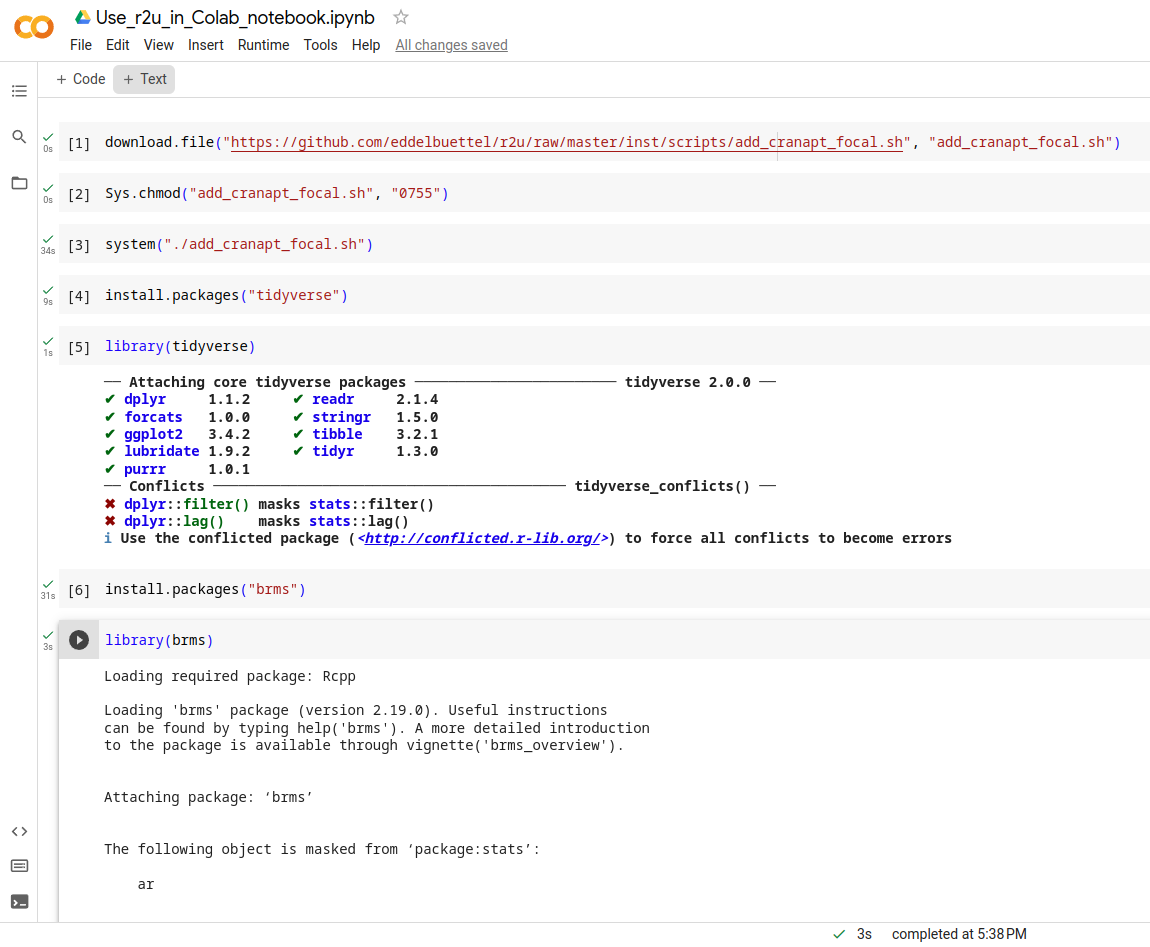Dirk Eddelbuettel: RcppArmadillo 0.12.6.1.0 on CRAN: New Upstream

 Armadillo is a powerful
and expressive C++ template library for linear algebra and scientific
computing. It aims towards a good balance between speed and ease of use,
has a syntax deliberately close to Matlab, and is useful for algorithm
development directly in C++, or quick conversion of research code into
production environments. RcppArmadillo
integrates this library with the R environment and language and is
widely used by (currently) 1092 other packages on CRAN, downloaded 30.1 million
times (per the partial logs from the cloud mirrors of CRAN), and the CSDA paper (preprint
/ vignette) by Conrad and myself has been cited 545 times according
to Google Scholar.
This release brings bugfix upstream release 12.6.1. Conrad release
12.6.0 when CRAN went on summer
break. I rolled it up ran the full reverse-depenency check against the
now more than 1000 packages. And usage from one those revealed a
corner-case bug (of not always flattening memory for sparse matrices
to zero values) so 12.6.1 followed. This is what was uploaded today. And
as I prepared it earlier in the week as CRAN reopened, Conrad released a
new 12.6.2. However, its changes are only concerned with
settings for Armadillo-internal use of its random number generators
(RNGs). And as RcppArmadillo connects Armadillo to the RNGs provided by
R, the upgrade does not affect R users at all. However it is available
in the github repo, in the Rcpp drap repo and at r-universe.
The set of changes for this RcppArmadillo release follows.
Armadillo is a powerful
and expressive C++ template library for linear algebra and scientific
computing. It aims towards a good balance between speed and ease of use,
has a syntax deliberately close to Matlab, and is useful for algorithm
development directly in C++, or quick conversion of research code into
production environments. RcppArmadillo
integrates this library with the R environment and language and is
widely used by (currently) 1092 other packages on CRAN, downloaded 30.1 million
times (per the partial logs from the cloud mirrors of CRAN), and the CSDA paper (preprint
/ vignette) by Conrad and myself has been cited 545 times according
to Google Scholar.
This release brings bugfix upstream release 12.6.1. Conrad release
12.6.0 when CRAN went on summer
break. I rolled it up ran the full reverse-depenency check against the
now more than 1000 packages. And usage from one those revealed a
corner-case bug (of not always flattening memory for sparse matrices
to zero values) so 12.6.1 followed. This is what was uploaded today. And
as I prepared it earlier in the week as CRAN reopened, Conrad released a
new 12.6.2. However, its changes are only concerned with
settings for Armadillo-internal use of its random number generators
(RNGs). And as RcppArmadillo connects Armadillo to the RNGs provided by
R, the upgrade does not affect R users at all. However it is available
in the github repo, in the Rcpp drap repo and at r-universe.
The set of changes for this RcppArmadillo release follows.
Courtesy of my CRANberries, there is a [diffstat report relative to previous release]. More detailed information is on the RcppArmadillo page. Questions, comments etc should go to the rcpp-devel mailing list off the Rcpp R-Forge page. If you like this or other open-source work I do, you can sponsor me at GitHub.Changes in RcppArmadillo version 0.12.6.1.0 (2023-07-26)
- Upgraded to Armadillo release 12.6.1 (Cortisol Retox)
- faster multiplication of dense vectors by sparse matrices (and vice versa)
- faster
eigs_sym()andeigs_gen()- faster
conv()andconv2()when using OpenMP- added
diags()andspdiags()for generating band matrices from set of vectors
This post by Dirk Eddelbuettel originated on his Thinking inside the box blog. Please report excessive re-aggregation in third-party for-profit settings.
 r2u on colab focal
r2u on colab focal
 The Rcpp Core Team is delighted to announce that the newest release
1.0.11 of the
The Rcpp Core Team is delighted to announce that the newest release
1.0.11 of the  Another minor maintenance release, now at version 0.0.20, of
Another minor maintenance release, now at version 0.0.20, of  The second release of the
The second release of the